@tracefile_read_last_by_mask filemask [regexp] [ignore_regexp]
– finds last trace by filemask and filters rows by regexp and filters out rows by ignore_regexp:
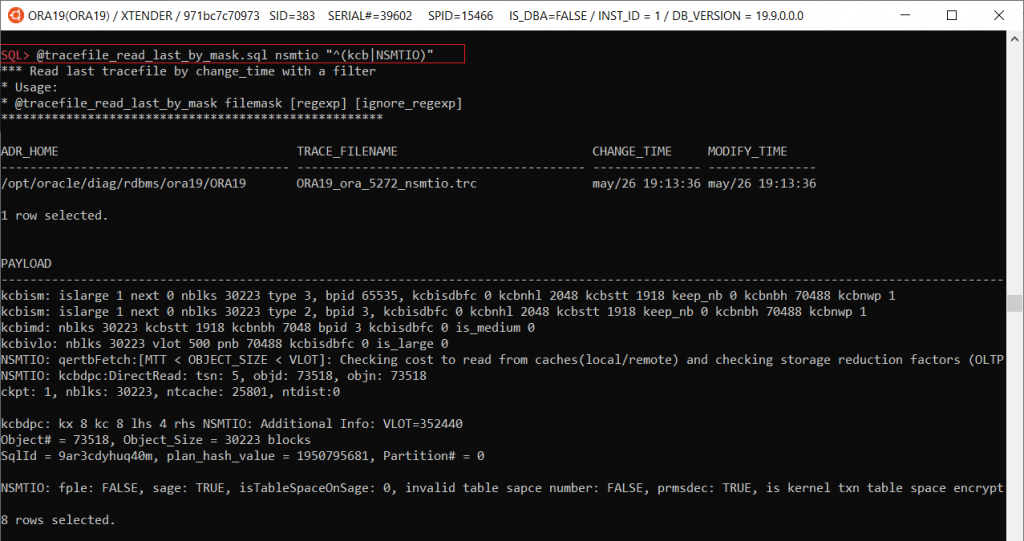
@ tracefile_by_mask.sql [mask] – finds and shows last 10 trace files by mask
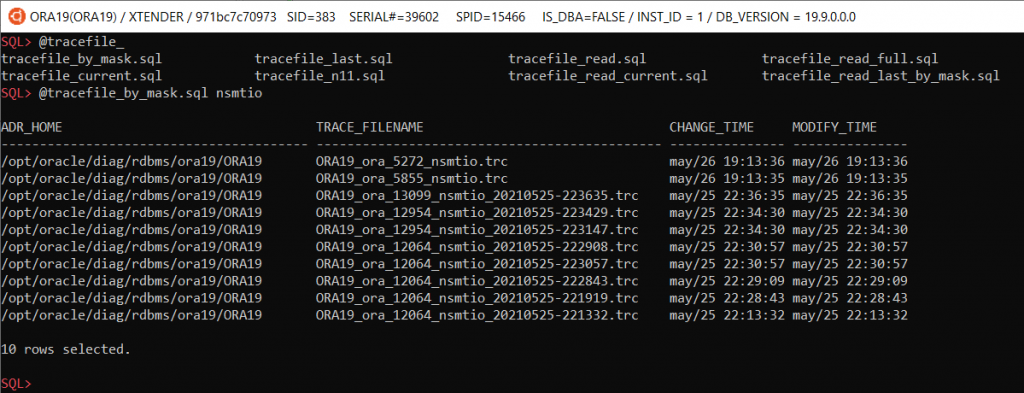
@tracefile_current – shows a file name of the your session’s trace file
@tracefile_read_current – reads a trace file of the current session
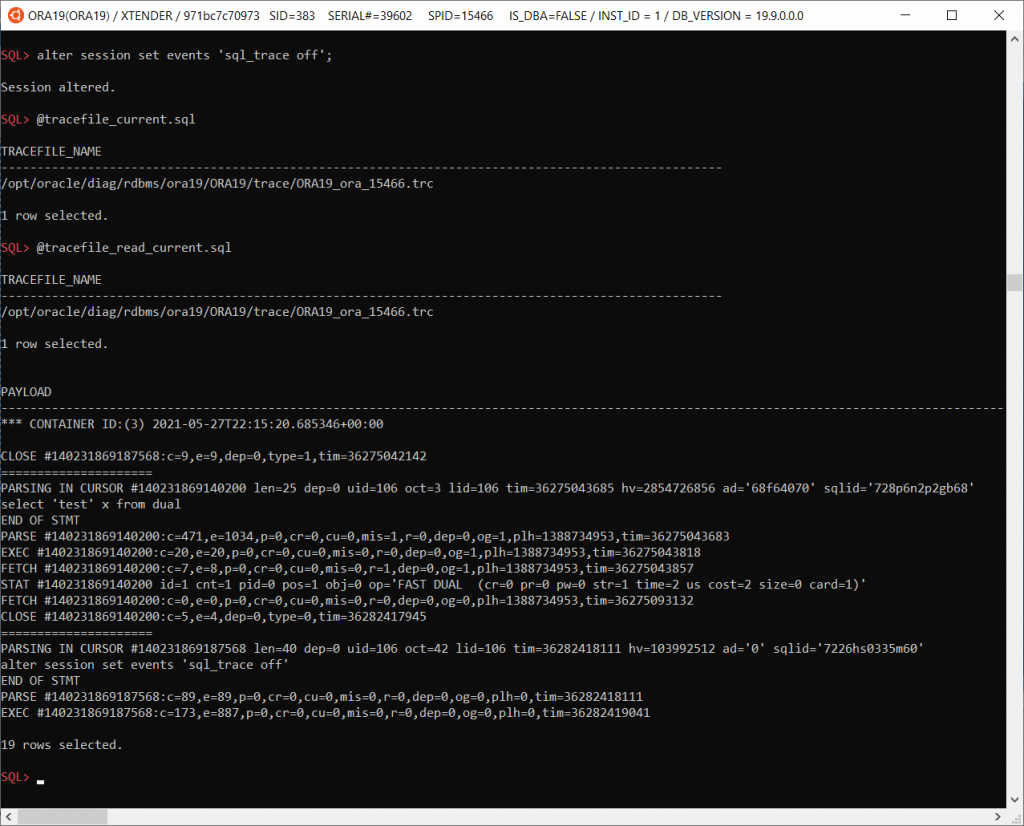
@tracefile_last [n] – shows last N trace files (by default 10)
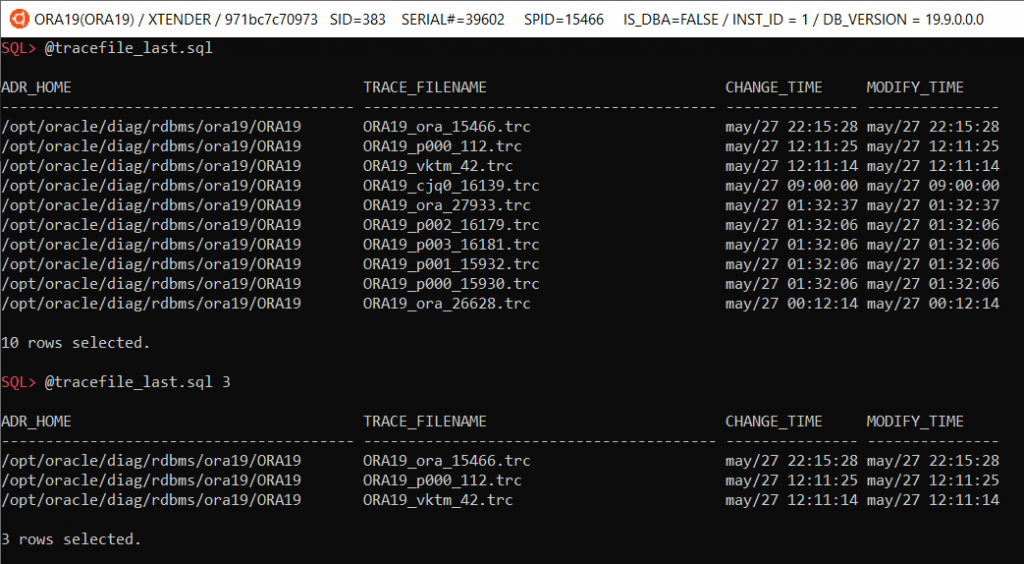
@tracefile_read filename – reads a specified trace file

@tracefile_read_full.sql <filename> – reads a specified trace file and shows it with additional columns: component_name, operation_name, file_name, function_name
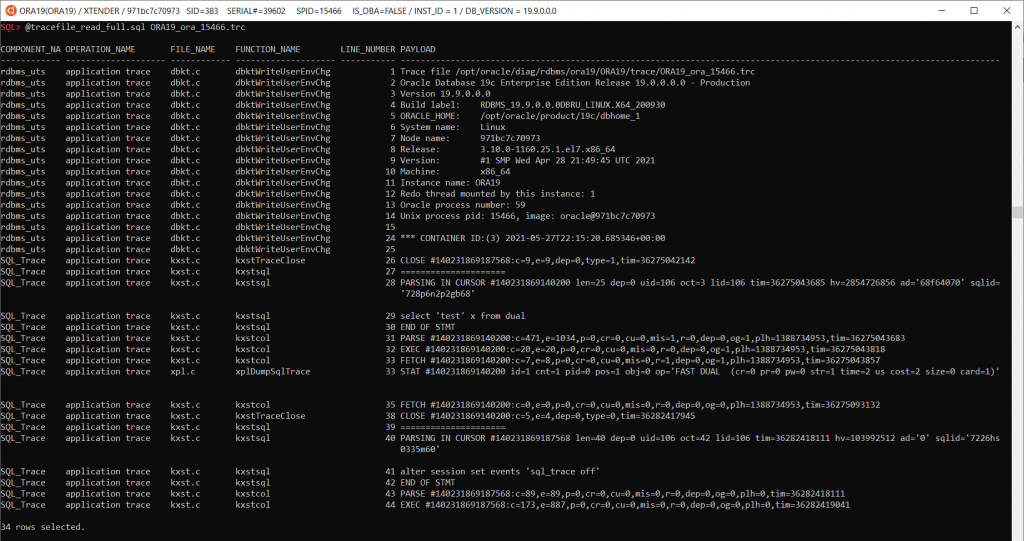
@tracefile_spool <tracefilename> <dest_file> – saves tracefilename to dest_file on local machine:

Incidents, problems and incident files
@diag/problems_last.sql [N] – shows last N problems, N is optional, by default shows last 10 problems
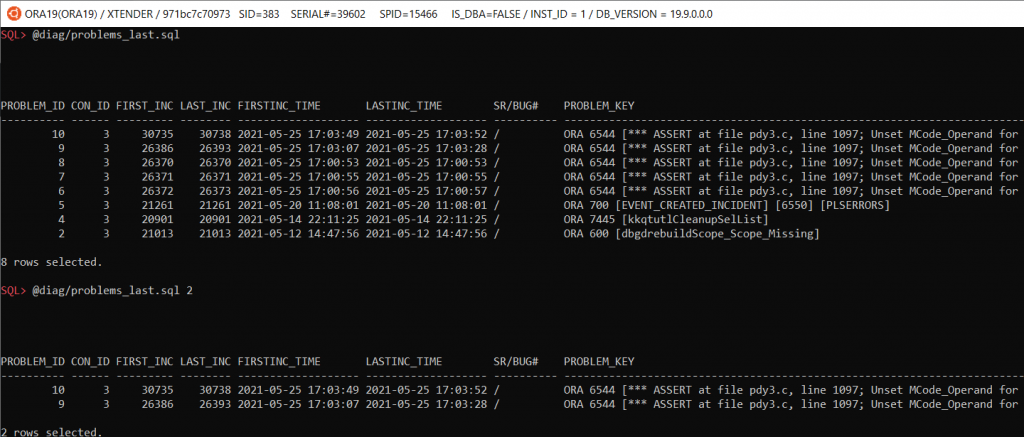
@diag/incidents_last.sql [N] – shows last N incidents (by default 10)

@diag/incidents_by_problem.sql <problem_id> [N] – shows last N incidents by problem_id

@diag/adr_home_create.sql – creates a directory object for reading incident files:

@diag/incident_files_by_mask.sql filemask – shows incident file names by file mask
SQL> @diag/incident_files_by_mask.sql %incident%387.%
INCIDENT_ID OWNER_ID FLAGS CON_ID BFILE
----------- ---------- ---------- ------ ------------------------------------------------------------
26387 1 1 3 <ADR_HOME>/incident/incdir_26387/ORA19_ora_2942_i26387.trc#0
1 row selected.
@diag/incident_files_by_id.sql incident_id – shows incident files by incident_id

@diag/incident_files_spool_by_id.sql incident_id – saves an incident file on local machine:

